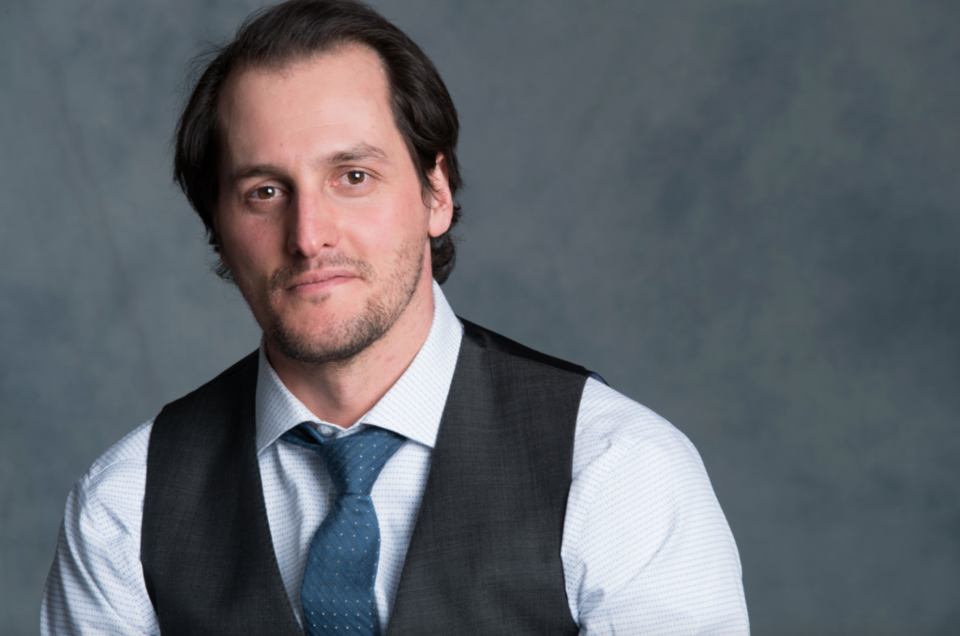
It’s the earliest opening ever for the Shaw Festival Theatre, as the 10-day run of This Is How We Got Here kicks off the 2022 season Wednesday, Feb. 9. But the unconventional start date is not the only way Shaw is shaking things up.
Written by Keith Barker, a Métis artist and playwright, This Is How We Got Here is a complex story of love and loss, at times both heartbreaking and heartwarming. Four characters - best friends, sisters and spouses - struggle to reconnect in the wake of a tragic loss that is all too familiar in Barker’s Northwestern Ontario hometown.
In an entry on the Shaw website, Barker laments the loss of three people close to him via suicide.
“The most significant teachings I have received have been about how to live with and move through great loss,” he writes. “This play also came out of my frustrations with the shame and silencing I have witnessed from people who are uncomfortable with suicide and death.”
Barker is the outgoing artistic director of Native Earth Performing Arts and a 2018 Governor General’s Literary Award finalist for This Is How We Got Here. It’s original run at that Toronto theatre won the 2020 Dora Award for outstanding new play, and received three nominations for production (Independent Theatre), direction (Barker) and scenic design (Shannon Lea Doyle). That same year, This Is How We Got Here received the Playwrights Guild’s Carol Bolt Award.
Sixth-year Shaw veteran Kristopher Bowman appeared in the Toronto production, and reprises the role of Paul at Shaw this month.

“It deals with a lot of challenging issues,” Bowman admits. “It’s a beautiful play that swims in some very deep waters. Paul is a Northern Ontario boy who plays hockey, works on cars, and fights. He doesn’t talk about his feelings. He only cries when his dog dies. It makes him emotionally constipated.”
Bowman says for Paul, anger is the emotion that drives him more than any other. To feel grief, to experience loss, to open his heart and let the pain spill out, are foreign ideas. Without the tools he needs to deal with his unfathomable sorrow, he can’t navigate his way successfully through it.
“It’s taxing,” Bowman says about embodying Paul nightly. “It leaves me emotionally spent. It’s well worth performing, though there is a tax to be paid for your spirit. But it’s the nutrients you put into the garden. I want to make it worthwhile, I want to make it honest. I have to allow myself to be open to the pain.”
Through many long days of rehearsal, Bowman says each member of the cast - Jonathan Fisher, Nicole Joy-Fraser and Jenn Forgie - as well as director Barker and some of the production crew, have had to remove themselves to gather their composure. For Bowman, the loss of Paul’s son brings back emotions of losing his father. And he reflects on his own relationship with his 13-month old son River.
“Your body doesn’t know the difference between the stress that you use in make-believe and stress that you know is real. Your body goes through that physiological state, and your muscle memory is long. You do your best to protect yourself from it, but at that moment it’s like working with plutonium.”
Presented as it is in partnership with Native Earth Performing Arts, and in light of playwright Barker’s own experiences, it’s not lost on any involved that the Indigenous community across the nation has been devastated by high rates of suicide.
Fittingly, the cast and crew have turned to a traditional Indigenous custom, holding smudging ceremonies both before and after each rehearsal. They have also enlisted a local Indigenous Elder named Albert to provide counsel and guidance periodically.
And, as they did two years ago during the Toronto run, there will be a question and answer session following each Shaw performance to address the emotional highs and lows for both production members and theatre goers alike.
“We do the Q & A because we feel the audience should be held,” says Bowman. “At our last performance, we put the helpful phone numbers on the back for suicide prevention. And we want the audience to know that we are okay as actors. It’s a gut-shot of a show, and it’s important to talk about the process.”
He continues, “we had this woman who talked about how she had attempted suicide years ago. She told us after the play that it was the first time that she really understood what she had put her parents through. It was a fascinating moment, highlighting how many people it affects.”
Despite the heavy subject matter, Bowman says This Is How We Got Here has many light moments that will have the audience laughing at the human nature of the characters as they interact with one another.
“We do go to some dark pockets of the story,” Bowman admits, “but there are so many moments when you see so much love, compassion, understanding, humour and warmth. There is a lot to be said for seeing the resilience of these people, pressing on in that adversity. It’s challenging, but when you see it, you will be enriched. The view from the top of the mountain is beautiful, but you don’t get there without climbing the mountain.”
Bowman, an embedded artist at Shaw, gives great credit to artistic director Tim Carroll for taking chances and stepping out of the usual comfort zone with plays such as this one.
“I think great art moves the mercury. I really appreciate that the Shaw is giving patrons more options. It’s one of those pieces that is very honest, that encompasses opinions that aren’t very often put on a stage in this community. Having a new point of view gives our patrons a chance to receive a reward for experiencing something new.”
This is How We Got Here is on stage at the Jackie Maxwell Studio Theatre from Feb. 9 to 19. It’s recommended for ages 14-plus, with an approximate running time of 75 minutes with no intermission. Performance times and tickets are available via https://www.shawfest.com.


